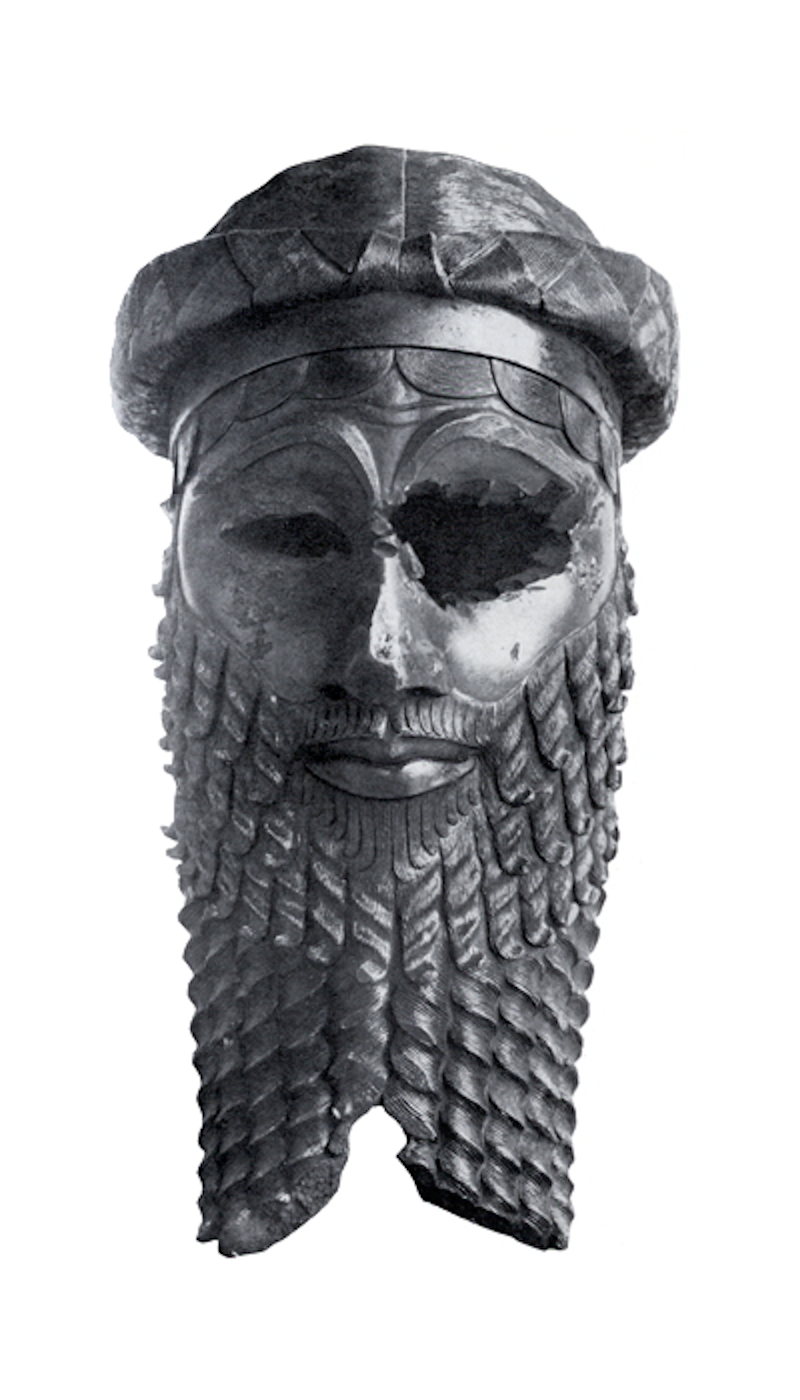Difference between revisions of "Sargon I and Adoption"
(Created page with "{{#eimage: http://upload.wikimedia.org/wikipedia/commons/4/44/Sargon_of_Akkad.jpg |410x579px|thumb|'''Bronze head of a king, most likely Sargon of Akkad but possibly Naram-Sin...") |
m (→References) |
||
| (One intermediate revision by the same user not shown) | |||
| Line 6: | Line 6: | ||
==References== | ==References== | ||
Microsoft Encarta 98 [[Encyclopedia]], 1993-97 | Microsoft Encarta 98 [[Encyclopedia]], 1993-97 | ||
| − | "Birth Legend of Sargon of Akkad," translated by B.R. Foster. In: The Context of Scripture: Canonical Compositions from the Biblical World, vol. 1, edited by W.W. Hallo (Leiden: E.J. Brill, 1997). Also available at: | + | "Birth Legend of Sargon of Akkad," translated by B.R. Foster. In: The Context of Scripture: Canonical Compositions from the Biblical World, vol. 1, edited by W.W. Hallo (Leiden: E.J. Brill, 1997). Also available at: puffin.creighton.edu/theo/simkins/tx/BirthSargon.html |
[[Category: Adoption Celebrities]] | [[Category: Adoption Celebrities]] | ||
Latest revision as of 19:33, 4 March 2018
Biography
Sargon united the kingdoms of Sumer and Akkad, including parts of modern Syria, Iraq, Iran and Turkey. His early life is largely a mystery. One ancient Sumerian legend states that he was the son of a high priestess and was floated in a basket on the Euphrates before being rescued and raised by a water-drawer named Aqqi who adopted him. (compare: the stories of Maui and Moses). He worked in Aqqi's orchards and became a favorite of the goddess Ishtar.
It is not known how a man of such unprepossessing beginnings was able to attain his position, but the great king rising from obscurity is a common theme in ancient mythology, serving to emphasize his natural and god-given authority (especially when coupled with a divine parent), and kings would cultivate such tales to enhance their prestige, in the same was as modern politicians encourage stories of their rise from humble origins.
References
Microsoft Encarta 98 Encyclopedia, 1993-97 "Birth Legend of Sargon of Akkad," translated by B.R. Foster. In: The Context of Scripture: Canonical Compositions from the Biblical World, vol. 1, edited by W.W. Hallo (Leiden: E.J. Brill, 1997). Also available at: puffin.creighton.edu/theo/simkins/tx/BirthSargon.html
- Adoption Celebrities
- Adopted Persons
- Arab, Middle Eastern
- European
- Near East
- Iran
- Iraq
- Syria
- Turkey
- Bce
- Rulers, Nobles, Chiefs, Presidents, Prime Ministers
- Military and Defense
- Figures Whose Adoption or Fostering Is Fictitious, Disputed or Unconfirmed
- Birth or Infancy
- Others ("Strangers")
- Wealthy, Famous, Noble or Divine Adoptive or Foster Families
- Very Poor (Financially) Adoptive or Foster Families
